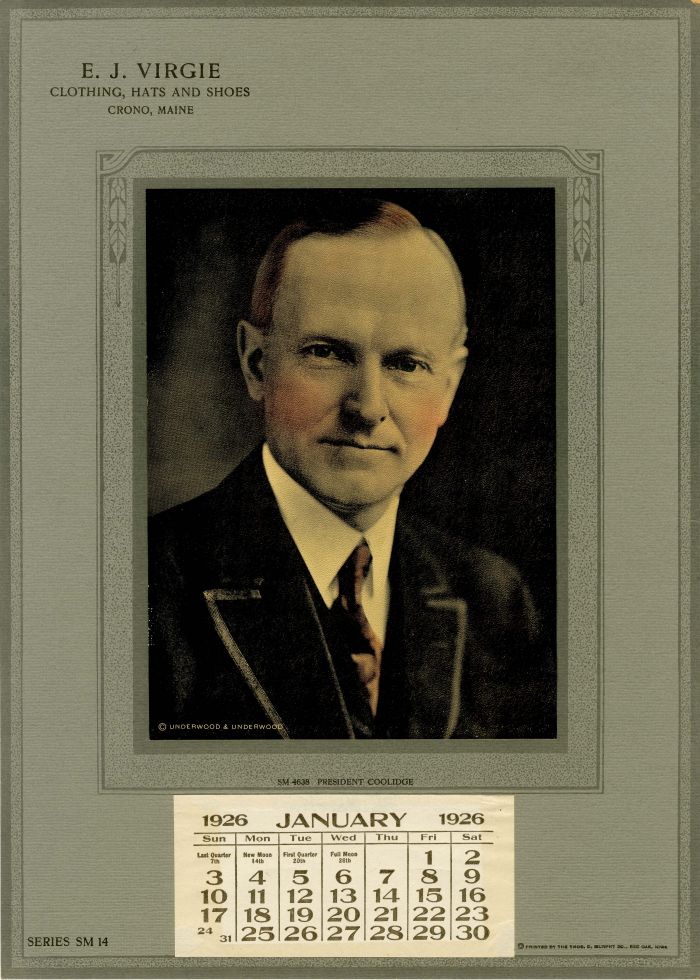Ad Calendar with Portrait of President Coolidge
Inv# AM1670 Calendars
John Calvin Coolidge, Jr. (1872-1933) John Calvin Coolidge, Jr. was the 13th President of the U. S. A Republican lawyer from Vermont, Coolidge worked his way up the ladder of Massachusetts state politics, eventually becoming governor of that state. His actions during the Boston Police Strike of 1919 thrust him into the national spotlight. Soon after, he was elected as the 29th Vice President in 1920 and succeeded to the Presidency upon the death of Warren G. Harding. Elected in his own right in 1924, he gained a reputation as a small-government conservative. In many ways Coolidge's style of governance was a throwback to the passive presidency of the nineteenth century. He restored public confidence in the White House after the scandals of his predecessor's administration, and left office with considerable popularity. As his biographer later put it, "he embodied the spirit and hopes of the middle class, could interpret their longings and express their opinions. That he did represent the genius of the average is the most convincing proof of his strength." Many later criticized Coolidge as part of a general criticism of laissez-faire government. His reputation underwent a renaissance during the Reagan administration, but the ultimate assessment of his presidency is still divided between those who approve of his reduction of the size of government and those who believe the federal government should be more involved in regulating the economy. After the presidency, Coolidge served as chairman of the non-partisan Railroad Commission, as honorary president of the Foundation of the Blind, as a director of New York Life Insurance Company, as president of the American Antiquarian Society, and as a trustee of Amherst College. Coolidge published his autobiography in 1929 and wrote a syndicated newspaper column, "Calvin Coolidge Says," from 1930–1931. Faced with looming defeat in 1932, some Republicans spoke of rejecting Herbert Hoover as their party's nominee, and instead drafting Coolidge to run, but the former President made it clear that he was not interested in running again, and that he would publicly repudiate any effort to draft him, should it come about. Hoover was renominated, and Coolidge made several radio addresses in support of him. He died suddenly of a heart attack at his home in Northampton, "The Beeches," at 12:45 p.m., January 5, 1933. Coolidge is buried beneath a simple headstone in Notch Cemetery, Plymouth Notch, Vermont, where the family homestead is maintained as a museum.










Ebay ID: labarre_galleries